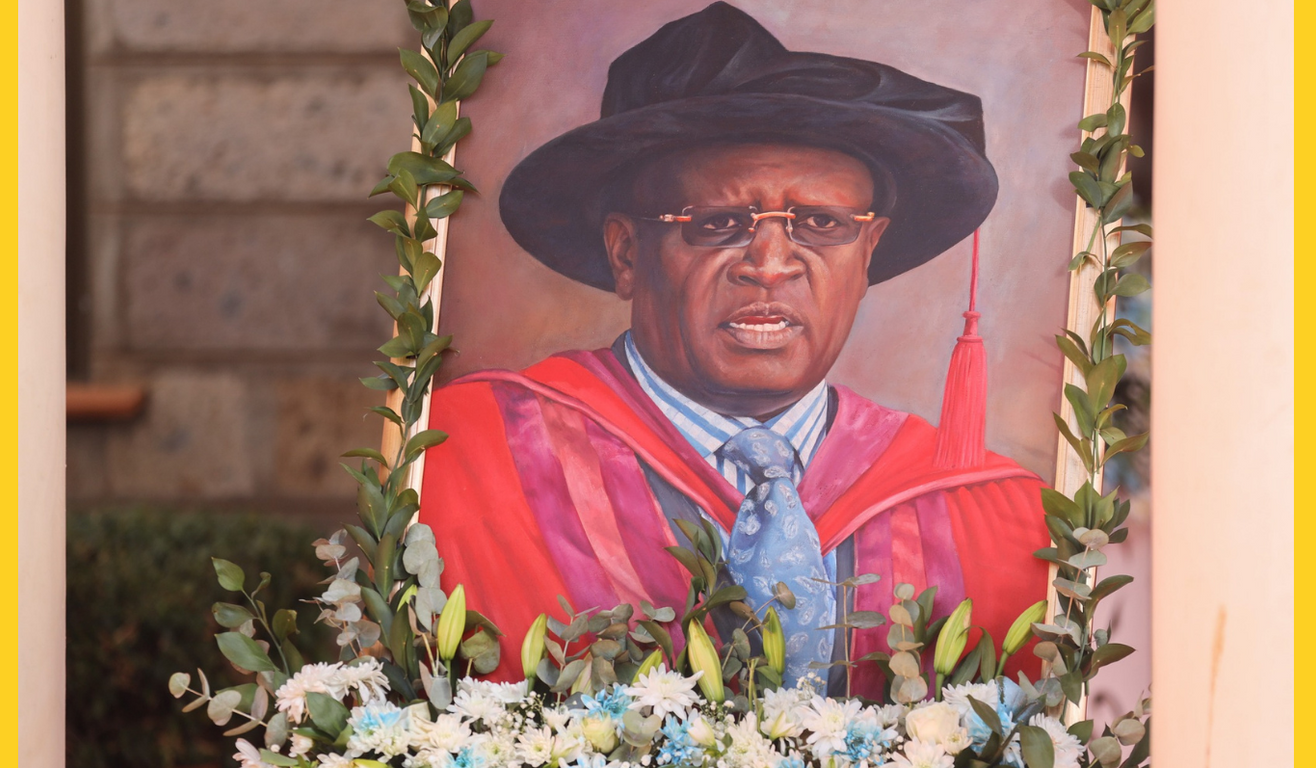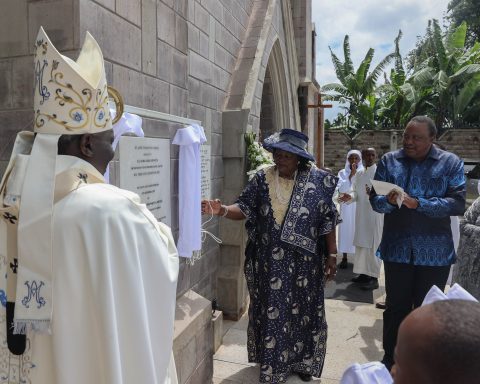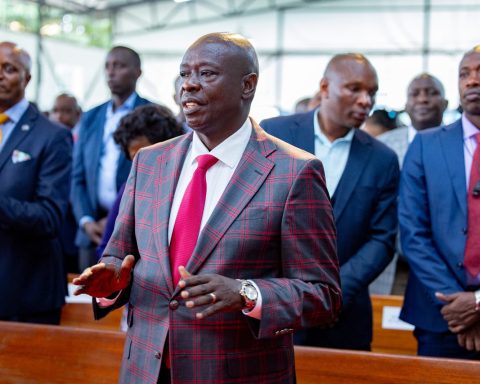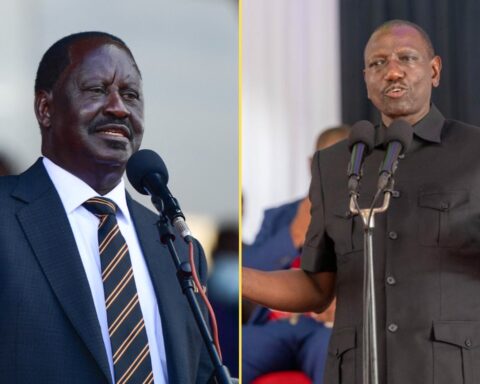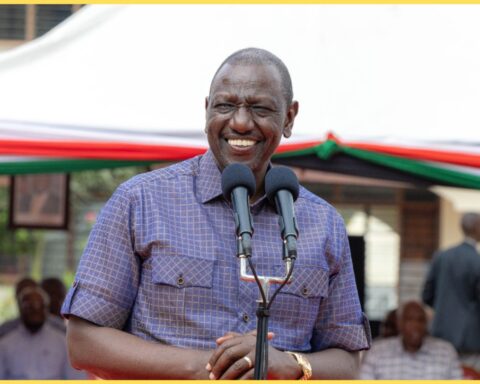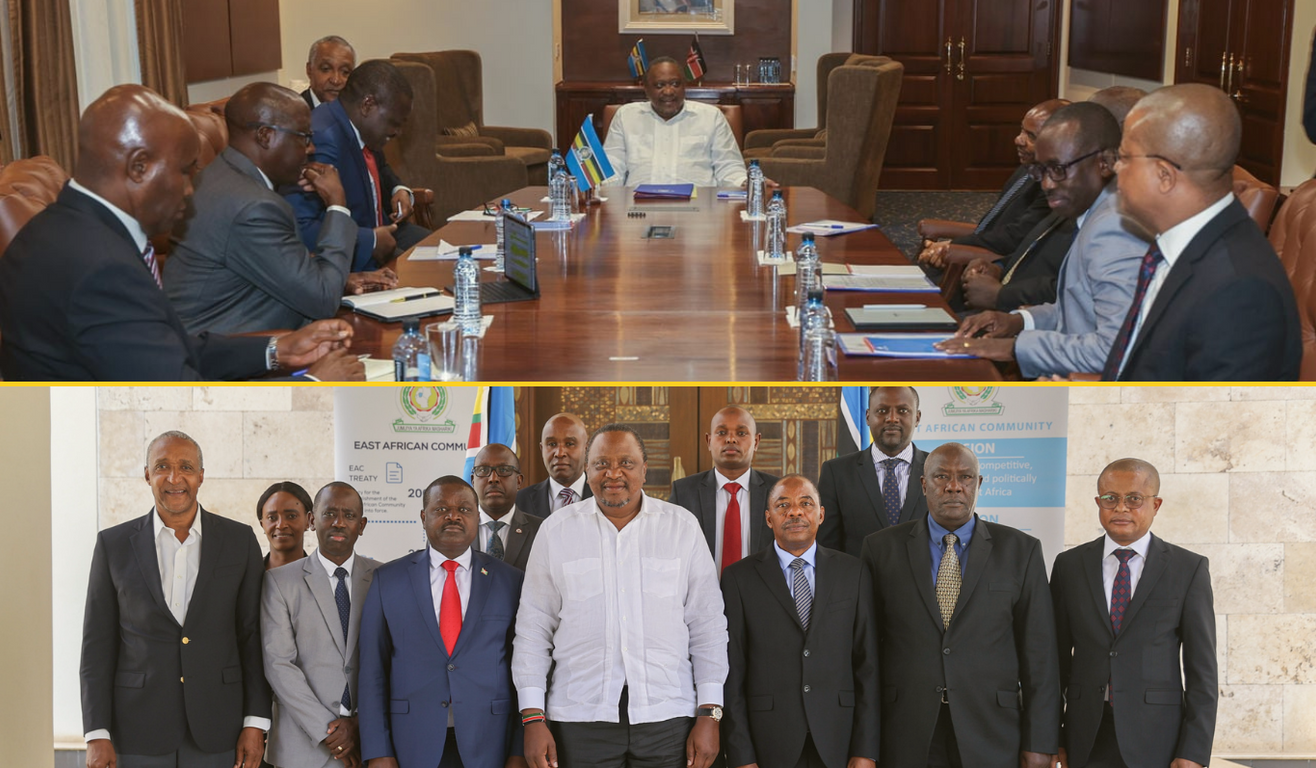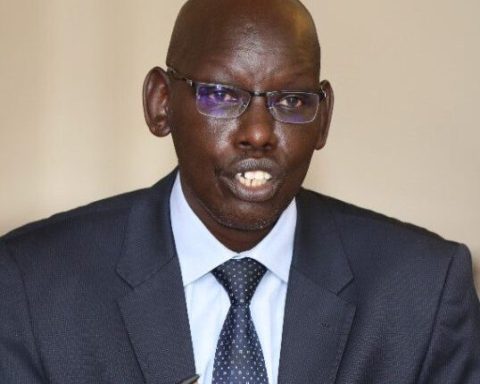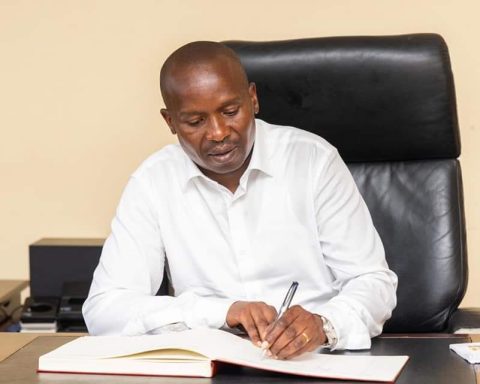CS Matiangi is right to point out that CS Prof. George Magoha did not entertain discussions on ‘ethnicity’ which in my view was a huge failure that both men shared.
I pass through Gusii going home. The place didn’t feel Matiangi’s No.2 status for the full four years he was ‘acting Deputy President’. He didn’t change it, like, say, Simeon Nyachae or Prof. Sam Ongeri did.
Matiangi, like his boss, Uhuru, were rejected where it mattered most – on the home front. I can understand Uhuru’s rejection – the result of near 60 years of political socialization – but Matiangi failed because he, like Prof. Magoha, refused to play on the home stage. Remind me to return to this point.
Appointed into cabinet at a time of negotiated peace, Prof. Magoha struggled to relate with his ethnic group. He refused to situate himself in government primarily as a Luo. Perhaps, uknown to us, he had long given up on that mundane association.
Stories abound about his handling of politicians, his fellow Luos and non-Luos alike. When, after a handshake, a group of Luo politicians went to his office unannounced, uninvited, to seek spoils of the peace, he is said to have chased them away so chaotically. Few (politicians) visited him thereafter to ask for favours – justified or not. To him, it was meritocracy or the door.
While public officials and professionals like Prof. Magoha should be the rule, in Kenya, his actions were the exception. He could be adamant when the moment demanded fluidity. His system of reality was limited to his experiences at Starehe Boys and his numerous achievements as a medical doctor, an academic and administrator.
He completely forgot that life had started in the village, long before he joined Starehe. He was not alone. In the cabinet of President Uhuru that he sat, nearly everyone, save for the cunning hustler, wallowed in this elitist miasma, a romanticism that would later prove costly, and, to Magoha, fatal.
If President Uhuru failed to win his war on ethnicity, it is because he increasingly surrounded himself with the Magohas and Matiangis of this world, village escapees who had long abandoned the village, and now haplessly deluded themselves that they were out of reach of the village, where much of life – and life’s many inexorable conundrums – was still being lived.
Prof. Magoha as a public officer was always too hard on himself. He laughed sparingly. Most of the time, he sulked his life away.
Whatever insecurities he harbored, he masked them in his singleminded determination to succeed, to live his footprints in the sand, to carve out a portion of history for himself.
I argue that one must appreciate the ethnic reality of one’s existence and adjust accordingly. With this hindsight, it is easy to see why Magoha rejected ethnic determinism. Appointed to government in the tumultuous ’80s with the era’s cataclysmic antagonisms in the national body politic, as a Luo; he could only have survived, and thrived, by playing safe.
Something has to go on a man’s epitaph. So be it, says the man from Urim village: I did what I had to do!
Jowi! Jowi! Jowi!

